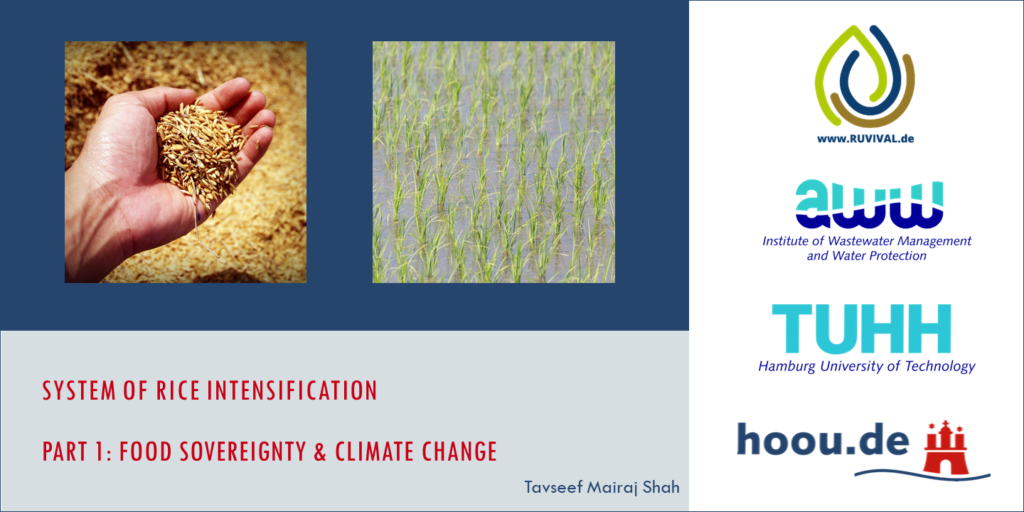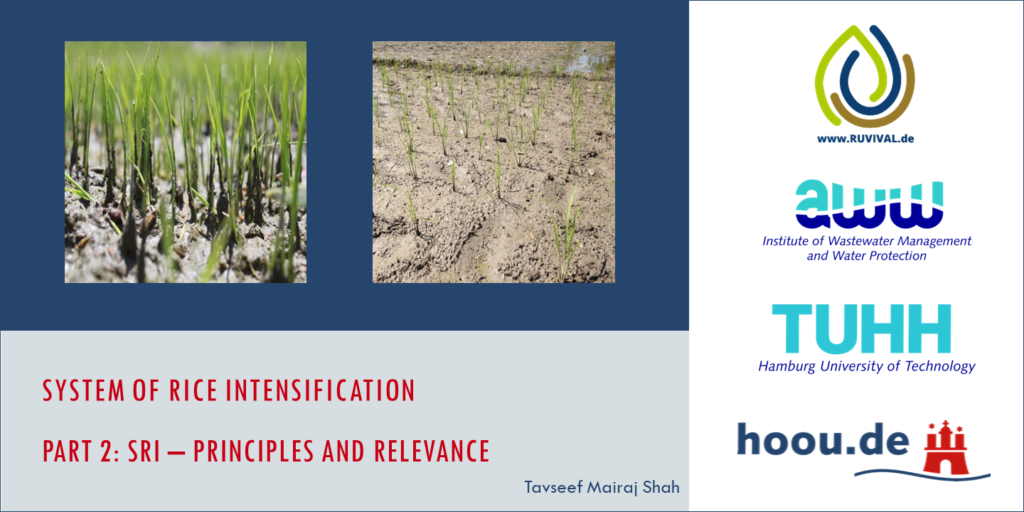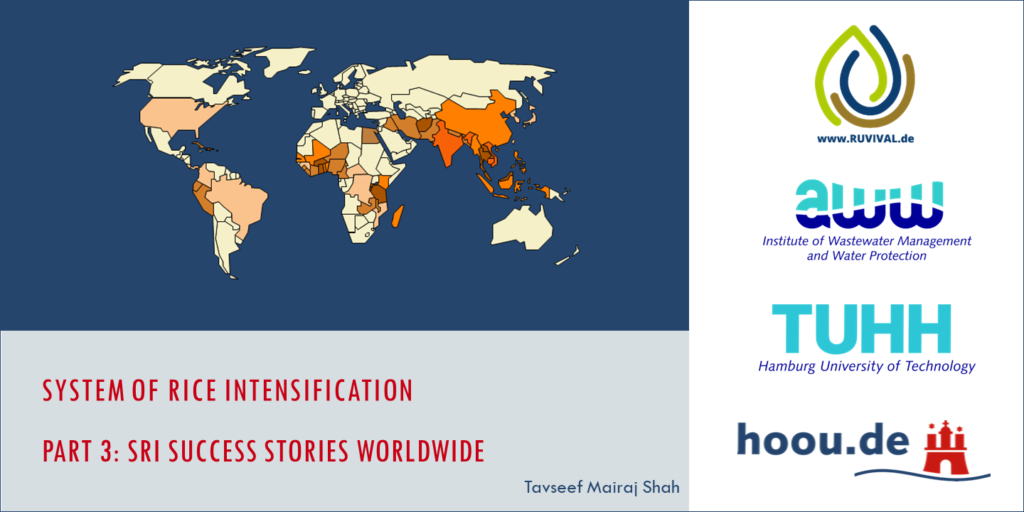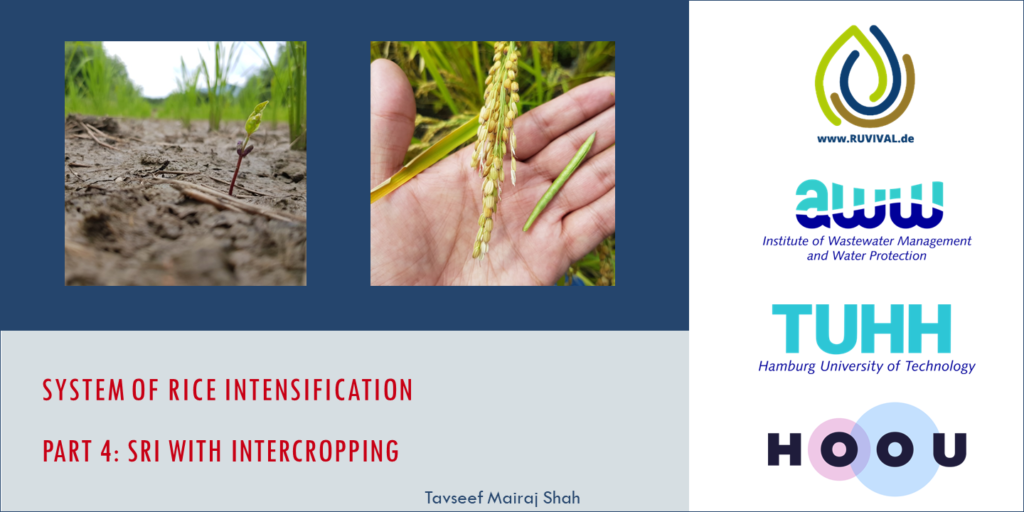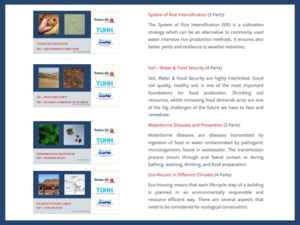This post is also available in: Español (Spanish) Français (French) Deutsch (German)
System of Rice Intensification (SRI) is a climate-smart, agro-ecological rice cultivation strategy. As such, it provides a viable alternative to conventional rice production methods. SRI has the potential to reduce water requirements, increase land productivity and reduce reliance on artificial fertilisers and other agrochemicals. This has further positive social implications, such as increasing household income and reducing costs associated with farming.
Switch on your loudspeakers/headset for this interactive multimedia lecture, which consists of 4 parts. At the end of the lecture, you have a chance to test your knowledge in the lecture quiz.
Quiz
Background on the SRI Rice Cultivation Method
SRI is not just one methodology, but rather a set of practice recommendations. It is based on four main interconnected principles:
- Early, quick and healthy plant establishment
- Reduced plant density
- Improved soil conditions (high organic matter content)
- Reduced and controlled water application (sustainable irrigation)
The method originates from India, China, Ethiopia, Malaysia and Madagascar, but SRI is spreading. A growing number of field reports document these benefits: a yield increase of up to 100 %, up to 50 % of water savings and a significant reduction of up to 90 % in required seed. Additionally, SRI ensures better resilience to weather extremes. By August 2018, more than 800 scientific papers on SRI have been published, discussing this concept. As a result, the practice is recently also applied to other crops such as wheat, tef, sorghum and sugarcane, then called System of Crop Intensification (SCI).
About the Lecturer
Tavseef Mairaj Shah is an environmental and process engineer by training. He is currently pursuing doctoral studies at Hamburg University of Technology. His field of research is Agroecology and Ecological Engineering.

